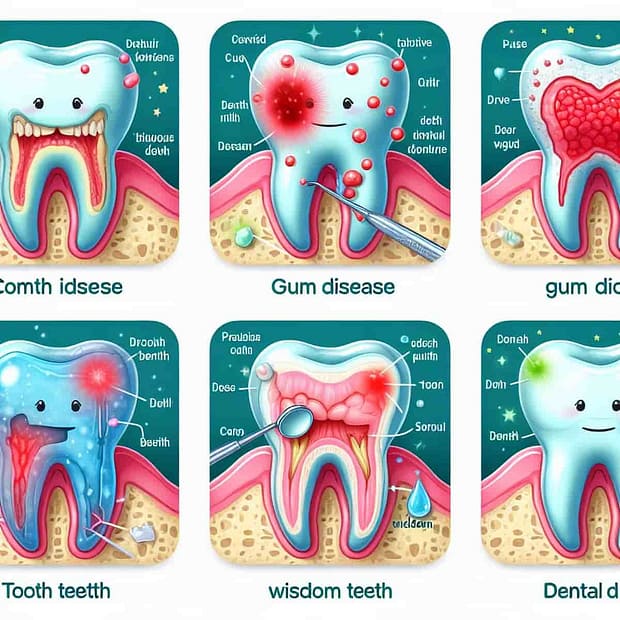Oral cancer, which includes cancers of the mouth, lips, tongue, throat, and salivary glands, poses a significant health threat with potentially devastating consequences if not detected and treated early. Understanding the risk factors, recognizing symptoms, and adopting preventive measures are crucial for reducing the incidence and impact of oral cancer. Let’s delve into the details:
Key Takeaways:
- Oral cancer can develop from various factors, including tobacco and alcohol use, human papillomavirus (HPV) infection, sun exposure, and poor oral hygiene.
- Symptoms of oral cancer may include mouth sores that don’t heal, persistent pain, difficulty swallowing, changes in voice, and lumps or thickening in the mouth or throat.
- Prevention of oral cancer involves avoiding tobacco and excessive alcohol consumption, practicing sun safety, maintaining good oral hygiene, and receiving the HPV vaccine.
Risk Factors for Oral Cancer:
Several factors increase the risk of developing oral cancer, including:
- Tobacco Use: Smoking tobacco (cigarettes, cigars, pipes) and chewing tobacco increase the risk of oral cancer, particularly when combined with heavy alcohol consumption.
- Alcohol Consumption: Excessive alcohol consumption, especially when combined with tobacco use, significantly increases the risk of oral cancer.
- Human Papillomavirus (HPV) Infection: Certain strains of HPV, particularly HPV-16 and HPV-18, increase the risk of oral cancer, especially in the oropharynx (throat) region.
- Sun Exposure: Prolonged exposure to ultraviolet (UV) radiation from the sun or tanning beds increases the risk of lip cancer.
- Poor Oral Hygiene: Neglecting oral hygiene practices, including regular brushing, flossing, and dental check-ups, may contribute to oral cancer risk.
- Age and Gender: The risk of oral cancer increases with age, and men are more likely than women to develop oral cancer.
- Dietary Factors: Poor nutrition, including a diet low in fruits and vegetables, may increase the risk of oral cancer.
Symptoms of Oral Cancer:
Symptoms of oral cancer may vary depending on the location and stage of the cancer but commonly include:
- Mouth Sores: Persistent mouth sores or ulcers that do not heal within two weeks.
- Pain or Discomfort: Persistent pain or discomfort in the mouth, throat, or ears.
- Difficulty Swallowing: Trouble swallowing (dysphagia) or a feeling of something stuck in the throat.
- Changes in Voice: Hoarseness or changes in voice quality that persist for more than two weeks.
- Lumps or Thickening: Lumps, bumps, or thickening in the mouth, throat, or neck.
- Unexplained Bleeding: Unexplained bleeding or numbness in the mouth or throat.
- Unexplained Weight Loss: Significant and unexplained weight loss without dieting or exercise.
Prevention of Oral Cancer:
Preventing oral cancer involves adopting healthy lifestyle habits and minimizing risk factors:
- Avoid Tobacco: Quit smoking and avoid all forms of tobacco use, including chewing tobacco and electronic cigarettes.
- Limit Alcohol: Drink alcohol in moderation, if at all, and avoid heavy or binge drinking.
- Practice Sun Safety: Protect lips from sun exposure by wearing wide-brimmed hats and using lip balms or sunscreens with SPF protection.
- Practice Good Oral Hygiene: Brush teeth at least twice a day, floss daily, and schedule regular dental check-ups for early detection of oral abnormalities.
- Receive HPV Vaccine: Vaccination against HPV can reduce the risk of HPV-related oral cancers, particularly in adolescents and young adults.
- Eat a Healthy Diet: Consume a balanced diet rich in fruits, vegetables, and whole grains, and limit processed and high-fat foods.
- Be Mindful of Risk Factors: Be aware of personal risk factors for oral cancer and take proactive steps to reduce risk and seek medical advice if symptoms arise.
In conclusion, oral cancer is a serious health concern with potentially devastating consequences, but it is largely preventable through awareness, lifestyle modifications, and early detection. By understanding the risk factors, recognizing symptoms, and adopting preventive measures, individuals can reduce their risk of oral cancer and maintain optimal oral health and well-being. If you experience any symptoms of oral cancer or have concerns about your risk factors, consult your healthcare provider or dentist for evaluation and appropriate management. Early detection and intervention can significantly improve outcomes for oral cancer patients.













